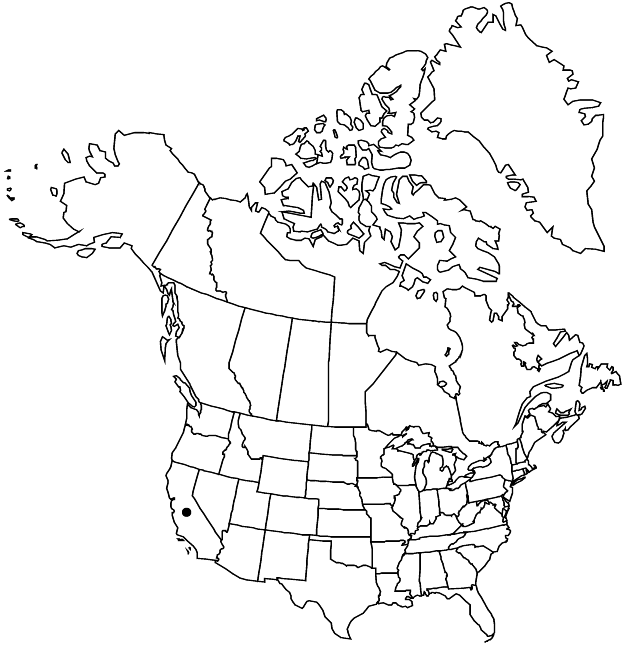Difference between revisions of "Chorizanthe blakleyi"
Leafl. W. Bot. 10: 95. 1964.
FNA>Volume Importer |
imported>Volume Importer |
||
| (One intermediate revision by one other user not shown) | |||
| Line 8: | Line 8: | ||
}} | }} | ||
|common_names=Blakley’s spineflower | |common_names=Blakley’s spineflower | ||
| + | |special_status={{Treatment/ID/Special_status | ||
| + | |code=E | ||
| + | |label=Endemic | ||
| + | }}{{Treatment/ID/Special_status | ||
| + | |code=C | ||
| + | |label=Conservation concern | ||
| + | }} | ||
|basionyms= | |basionyms= | ||
|synonyms= | |synonyms= | ||
| Line 47: | Line 54: | ||
|publication title=Leafl. W. Bot. | |publication title=Leafl. W. Bot. | ||
|publication year=1964 | |publication year=1964 | ||
| − | |special status= | + | |special status=Endemic;Conservation concern |
| − | |source xml=https:// | + | |source xml=https://bitbucket.org/aafc-mbb/fna-data-curation/src/2e0870ddd59836b60bcf96646a41e87ea5a5943a/coarse_grained_fna_xml/V5/V5_958.xml |
|subfamily=Polygonaceae subfam. Eriogonoideae | |subfamily=Polygonaceae subfam. Eriogonoideae | ||
|genus=Chorizanthe | |genus=Chorizanthe | ||
Latest revision as of 22:15, 5 November 2020
Plants spreading to ascending, 0.5–1.5 × 0.5–3 dm, thinly pubescent. Leaves basal; petiole 0.5–2 cm; blade oblanceolate, 0.5–2.5 × 0.3–0.8 cm, thinly pubescent. Inflorescences with involucres in dense clusters 1–2 cm diam., yellowish green; bracts 2, without whorl of sessile bracts about midstem, usually leaflike, oblanceolate, 0.5–1.5 cm × 1.5–3 mm, gradually reduced and becoming scalelike at distal nodes, linear, aciculate, acerose, 0.3–0.8 cm × 1–2 mm, awns straight, 1–2.5 mm. Involucres 3–10+, yellowish green, urceolate, slightly ventricose basally, 3–4.5 mm, slightly corrugate, without scarious or membranous margins, thinly pubescent; teeth spreading, unequal, 1–3 mm; awns straight or uncinate with longer anterior one straight or slightly curved, mostly 2 mm, others uncinate, 0.5–1.5 mm. Flowers exserted; perianth bicolored with floral tube greenish white to white and the lobes white to pinkish, cylindric, 5–6 mm, sparsely pubescent; tepals connate 2/3 their length, dimorphic, obovate, those of outer whorl erect, slightly longer than those of inner whorl, 2-lobed apically, those of inner whorl erect, 2-lobed, erose apically; stamens 9, included; filaments distinct, 5–5.5 mm, glabrous; anthers yellow to golden, oblong, 1–1.2 mm. Achenes brown, globose-lenticular, 3–3.5 mm. 2n = ca. 38.
Phenology: Flowering May–Jul.
Habitat: Sandy or gravelly flats and slopes, chaparral communities, oak woodlands
Elevation: 600-1600 m
Discussion
Of conservation concern.
Chorizanthe blakleyi is known only from north-facing slopes and foothills of the Sierra Madre. The species is rare and localized. The yellowish green stem, branches, and involucres readily distinguish it. The white flowers align it with C. obovata.
Selected References
None.
